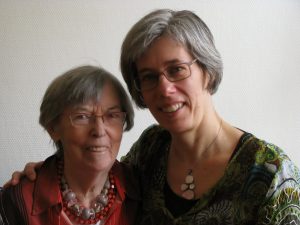Let’s think about dignity.
I was at my Pilates class recently, trying to concentrate on my stomach muscles, when talk in this group of women of a certain age somehow turned to dementia.
What I fear most, one woman said whilst reaching for her toes, is losing all your dignity.
Yes! Yes, me too! said the others, before asking me, How about you? Aren’t you worried about that?
I thought about this, and I said no, I am not worried about losing my dignity.
Why not? Because I don’t believe I will lose it.
To me, dignity means being seen and valued as a human being. Being loved. Having the opportunity to do what I can do (whether that is looking after myself, making choices, maintaining relationships…) and help with what I cannot do (whether that is looking after myself, making choices, maintaining relationships…)
There was a time when I was unable to walk or feed myself. I had double incontinence and needed to be cleaned up several times a day. I was unable to form a coherent thought, let alone speak. Yet I didn’t feel undignified, and I’m 100% certain that nobody else would have said I lacked dignity.
That’s because at the time, I was a baby.

Yes, that’s me with my mum. I was 10 months old and really quite dignified.
Dignity is a relationship thing.
We give it to each other, by recognising each other’s worth and beauty, and the contribution we all make to the world simply by being in it. It has nothing to do with my ability wipe my own bottom, or to speak in full sentences, or to understand how the washing machine works. It has everything to do with other people understanding that I can’t wipe my own bottom, and doing it for me, along with my washing.
When I was a baby, my mother gave me dignity by loving me and caring for me.
When she was an old woman with dementia, I gave it back to her. When she was dying, she needed help with everything (yes, that included help with cleaning up after bowel movements and doing her washing). But she was never undignified, because she was always my mum.

With my mother in 2014, a few months before she died. Always dignified, despite her dementia.
Isn’t that life’s natural cycle? We need help when we start; we learn skills and use them; and we decline, losing those skills and needing help again. Some of us may need more help than others throughout our lives.
Loss of dignity is not related to disability, or dementia, or dying.
It seems to me that it is exactly the diversity of life that makes it so beautiful.
I know many people with profound disabilities who have never been, and never will be, able to wipe their own bottoms – yet they are profoundly dignified. (They might lose their dignity if there is no-one to wipe their bottom. That is a political point: there must be enough support for families, friends, carers and staff who are needed to help us all keep our dignity.)
Stephen Hawkins’ life was dignified, because people respected and valued him. They understood the things he couldn’t do for himself and helped him with those things.
In my line of work, people talk about “dying with dignity”. It crops up in the highly complicated debates on assisted dying.
I’d like to challenge you to think about this.
What does dying with dignity mean to you?
Does it mean being autonomous until the day you die, being able to do everything for yourself, being fully in control of every aspect of your life (and your death)?
Or do you think it is possible to live your final years in a dignified way, and die a dignified death, whilst needing help with things you can currently do for yourself?
If I live long enough, there is quite a good chance that I will get dementia. It runs in the family. My answer to the Pilates women is this:
I don’t fear losing my dignity.
What I fear is that I will be seen as a nameless Woman With Dementia, rather than Irene Who Happens To Have Dementia. It’s happened before – not the dementia bit, but the bit where you feel you are seen as a nameless patient, not a person. (In my case, a cancer patient. If you’re interested, you can read about that here.)
What I also fear is that I won’t be able to accept life’s cycle; that I’ll rail against it; that I’ll find it difficult to accept my limitations and difficult to accept help. It’s much easier for me to pretend to be Superwoman than to admit to myself that I’m not. (Quite a learning curve it was, my experience of being a Cancer Patient.) The way to help me (and you may interpret this as my Advance Care Plan) is to support me without fuss, and never to stop seeing me as Irene, however incapacitated or confused I might be.

Thank you Irene. Your words are really helpful, truthful, easy to understand and encouraging.